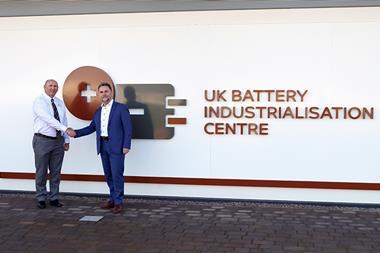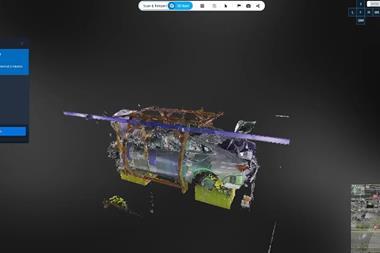Britishvolt has signed a two-year, multi-million-pound agreement with the UK Battery Industrialisation Centre (UKBIC) to develop next-generation battery cell technologies.

The partnership with the UKBIC will see the scaling up, assembly and manufacture of Britishvolt’s new sample cells for mass production and commercialisation.
Britishvolt says it is developing batteries for electric vehicles (EVs) that are more energy-dense and have high nickel content for increased battery performance with a more extended range.
The company notes that it has also successfully developed its first Production Intent next generation Li-ion cells, which are surpassing expectations, using UK developed intellectual property.
The 30GWh facility in Blyth is expected to start production in 2023 and will produce battery packs for more than 300,000 electric units a year at planned peak output in 2027.
Graham Hoare, president of Global Operations, Britishvolt, described UKBIC as an “essential ingredient” in the company’s plans to bring its battery technology to market, to meet rising EV demand.
“By working with our customers early we can offer flexibility and specific attributes linked to their application requirements. This is a vital USP and signals that the age of ‘off the peg’ battery production is no longer suitable for all,” he said.
“Low carbon, sustainable battery cells and associated R&D are the essential ingredients on the glide-path to net zero. Only responsibly produced batteries will lead to a successful energy transition.”
UKBIC is a national battery manufacturing development facility providing battery manufacturing scale-up and facilitating upskilling in the sector.
According to Jeff Pratt, managing director at UKBIC, the manufacturer of low carbon battery cells is vital for a successful energy transition to net-zero.
This follows the announcement that the UK government would be investing in Britishvolt through the Automotive Transformation Fund (ATF) to build Britain’s first large-scale gigafactory in Cambois near Blyth, in the Northeast of England.
Along with hitting net-zero targets, British manufacturers have made strides to secure local supply chains and battery production closer to home. As demand for EVs ramps up amid compounding crises such as coronavirus-related delay, labour shortages, and microchip deficits, the ability to source materials and manufacturing processes close to the market is increasingly essential






































No comments yet